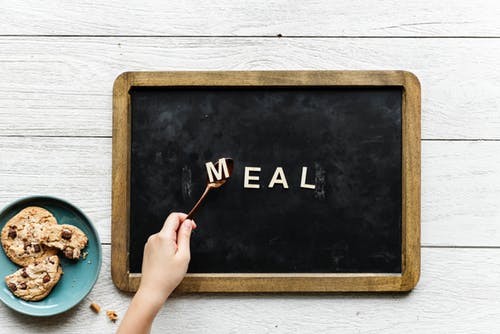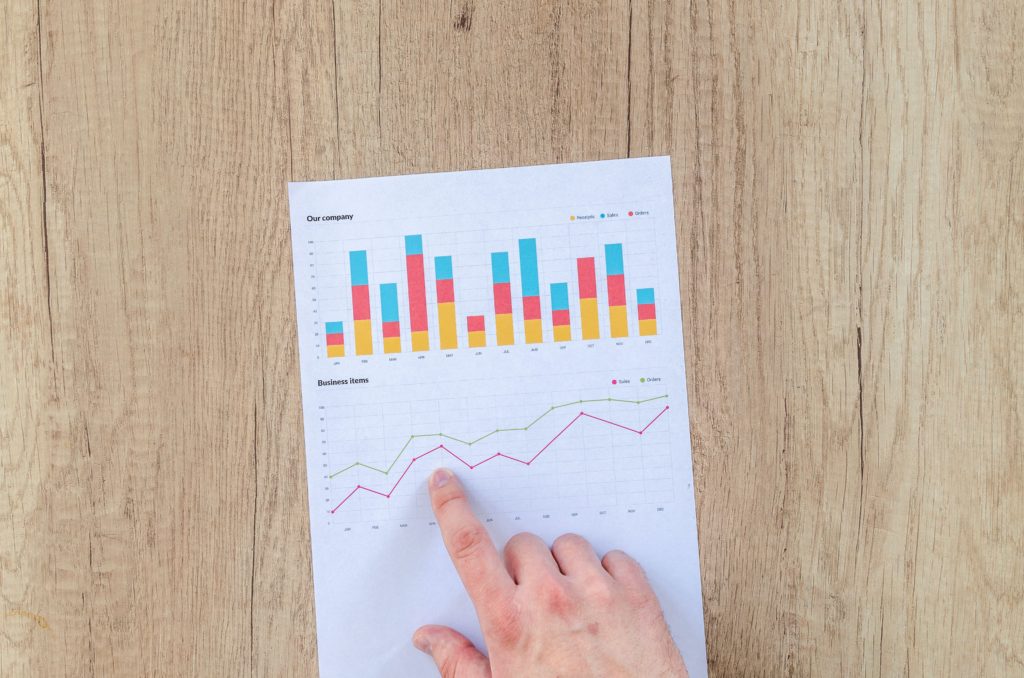Many of the people I work with who are living with and wanting to recover from an eating disorder share with me that they have a sense they are “putting recovery off” or keeping it at arm’s length.
They say they feel like they are dipping their toes in, challenging themselves sometimes but not fully feeling they truly do want to let go of the eating disorder (even despite knowing acutely just how much damage it is causing to their life).
They know they should want to recover, and they do want to want to but that’s different to actually wanting to.
Something is holding them back…
They also often confide in me that they have a sense that when they decide to do recovery, they will.
Only that day when they decide to do recovery fully never seems to come other than in short bursts of desperation (and they know that it won’t).
I know that it won’t.
Because I remember feeling the same.
For 15 years I felt if only I did the things, I knew I had to do I’d be fine.
The problem was I couldn’t do them (at least not in any consistent way).
The other problem was knowing what I know now I actually didn’t know (but my gosh I thought I did! All I can say is if you think you know exactly what it is you have to do this is probably a good sign that you don’t know exactly what it is you need to do… or you’d be doing it. My best advice to my past self would be don’t be so sure…)
In the rest of this blog, I’m going to discuss my thoughts around why I believe this desire to make recovery a someday thing versus a now thing is so common and importantly I’m going to offer some suggestions of what you can do about it if you’ve found yourself stuck in this place of limbo.
Because this is a common feeling in recovery but why?..
Why is the feeling of putting off recovery so common?…
Ultimately, I believe it comes down to the difference between planning to do recovery and actually doing recovery.
To explain what I mean by this I’m going to break this down into 4 areas:
- Safety in the Familiar

When I lived with anorexia nervosa the concept of recovery and living a recovered life was incredible (and totally make believe because I didn’t truly believe it was possible).
To entertain the freedom and magic of what recovered and being free from anorexia nervosa must be like was overwhelmingly beautiful.
However, the doing of what it takes to reach recovered not so much.
The doing is excruciating.
And what everyone who has ever recovered from an eating disorder (and there are a lot of us) will agree is there is no recovered without doing the day-to-day micro things that make up recovery.
It is those day to day entirely unromantic things like eating the extra spoon of ice-cream, having a bag of chips when no one is around or running ten steps less than the day before.
The stuff that feels insignificant, the stuff that no one else will see let alone understand is exactly the stuff that is the real recovery stuff.
The doing things differently is what the path of recovery requires and this is hard because there is always a desire to do things the same.
You could call this safety, the familiar, an unconscious program or just habit. There are plenty of words to describe the human predisposition to not change.
The familiar seems safe. To all of us.
After all the eating disorder is a way, your mind developed to cope in a world that is in all reality vast and scary (also incredible and wonderful) and to convince yourself to do something else when you’ve learned one way of coping is difficult (even more difficult if it’s a purely conscious and fact driven convincing which it usually is. The eating disorder does not answer to conscious information and facts).
2. Emotions Win Over Logic

The truth about recovery is it benefits our future selves much more than our present selves.
In many ways the day-to-day actions of recovery do not benefit our present selves.
They suck. To put it lightly.
Only of course where we have to do recovery is in the here and now and not the future.
We can’t rely on some future version of us who is 100% consistently motivated and happy to change.
That future version doesn’t exist.
Doing recovery is about doing the hard things now.
Doing recovery is about doing the hard things when the emotions are telling us not to because the emotions in the here and now are much more powerful than some imagined better future.
This truth is the bane of so many of our problems and challenges when it comes to making meaningful life change (not just recovery from an eating disorder).
You can plan and plan and plan on making a change, for example adding in a snack, eating a larger breakfast, going out for a meal with friends and so on but as long as you stay planning on doing it and not actually doing it you are delaying your recovery.
Planning on doing is different to doing.
If you were to understand that thinking, planning and strategizing is not where your cure is, what would you do?
What do you know you need to do?…
Because you do know.
3. Confused Values/Not Understanding What Recovery Really Is

For the most part the people I work with in recovery from eating disorders are what for all intents and purposes society would easily label as “high functioning” and “high achieving”.
Often people have an unconscious sense that if they were to let go of the eating disorder, they would lose these traits we (society) glorify. That it is the eating disorder that gives them these powers and pushes them to achieve and even in many cases to be a “good”, “selfless”, “kind”, “successful” or “driven person”.
When people value things like being a kind, successful or driven person for example and feel the eating disorder supports that then it’s difficult for them to give that up.
The truth is of course that an eating disorder isn’t any of these things and you can be a kind, successful or driven person (and any other traits you value) without an eating disorder. Truly, even more so.
A lot of recovery is defining what recovery means to you.
What kind of future would you like to live and who would you like to become that would make doing recovery (when it’s hard) worth it to you?…
4. You Don’t Really Know What to Do (Even Though You Think You Do)

Do you really know what to do?
Something that struck me as I was writing the introduction to this blog is that when I lived with anorexia nervosa, I really did believe I knew what I had to do.
I had a degree in biomedical science and chemistry.
I was even a dietitian after all.
I knew more about food, nutrition, anatomy, psychology and physiology than many know in their lifetime (more than I know now in fact).
And it was true I “knew” the theory of what I had to do.
What I didn’t know was how to apply it.
Which means that I really didn’t know at all.
What I know now is that it wasn’t about learning and then applying the perfect way of eating.
I was going about it all to consciously.
Which is what I see reflected back to me by so many of my clients today. This sense that if only they were able to apply all they knew they would be thriving because they believe they “know” what to do.
If you believe you know what to do and you’re beating yourself up because you can’t seem to do it what I’m about to say might surprise, you but have you considered you actually don’t know what to do?…
Eating isn’t a science.
It simply isn’t something a textbook can teach you.
It is an intuitive and unconscious process.
Therefore, to change anything with your eating it’s not about knowing how many micrograms of potassium are in a banana or how many calories are in a magnum ice-cream. It’s about being in rapport with and having quality communication with your unconscious mind.
Eating should be as simple as breathing, as simple as your heart beating.
And in ideal circumstances this is true.
However, we all know that even for those who’ve never lived with an eating disorder there are plenty of reasons why this isn’t always the case.
In the world we live in “ideal circumstances” are hard to come by.
There are plenty of reasons why food and eating gains more layers of complexity than it should. Endless messages from the outside world tell us in very convincing ways that eating is complex.
It’s not.
And if it feels like it is, I am doubtful that your adding more facts and knowledge to your already full mind will change that…
Summary

In summary what I hope came across in this blog is the big difference between planning inside of your mind to recover versus actually doing in your day-to-day life.
Recovery happens in your home, in your school, in your workplace, at your partners home, at the beach, when you’re cutting your toenails, in the car and in the shower.
Recovery happens when you’re alone, behind closed doors.
Recovery happens when there’s no one watching.
Recovery happens when you’re doing the stuff that no one will ever see or ever understand.
Recovery happens when you’re doing the stuff that actually comprises recovery (the stuff you know you need to do).
Planning is great.
But there’s only so much planning you can do.
And it’s only ever going to be partly useful.
At some stage you must step from planning into action.
The action is where and only where you will learn the answers you are trying to find by planning.
You don’t have to have it all figured out or get it all “right” but if the thought of living a recovered life inspires you then you will have to at some stage take the jump from planning to doing…
If you’re planning on doing recovery someday, why not make that day today?
On that note I’m going to leave you with some parting words by an incredibly smart hypnotherapist and medical doctor that nicely sum this blog up. A concept for you to consider if you get the sense you’ve been putting giving your all to recovery off…
Change will lead to insight far more often than insight will lead to change.
~ Milton H. Erickson.
With my whole heart I hope you found this information useful and inspiring.

Become Great. Live Great.
Bonnie.



